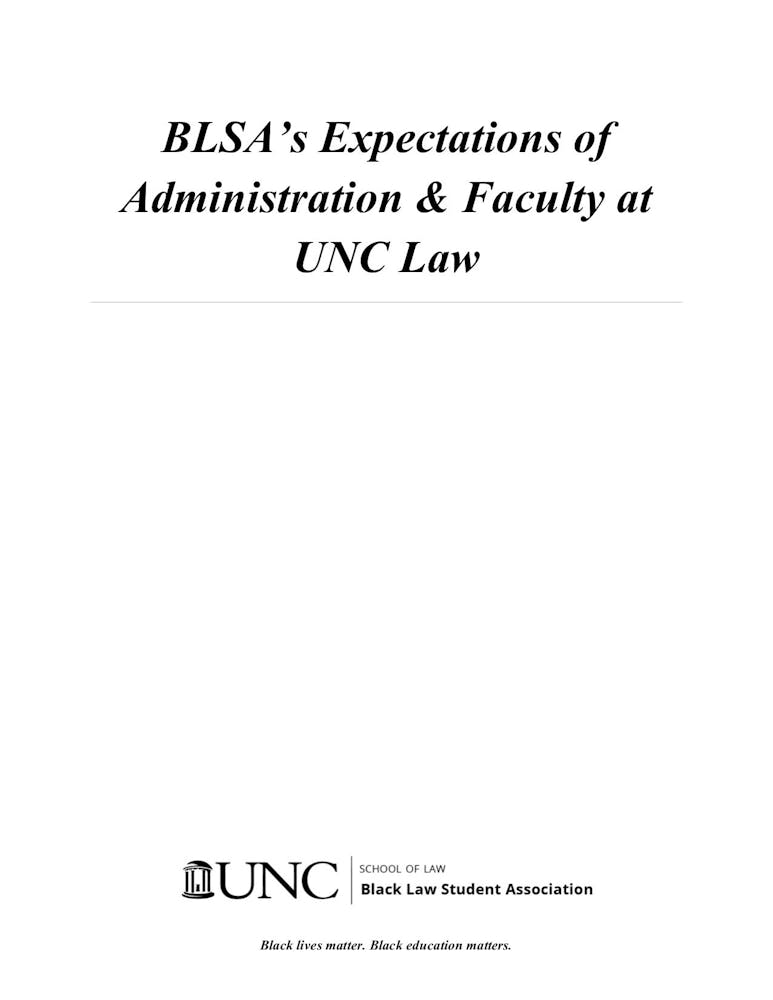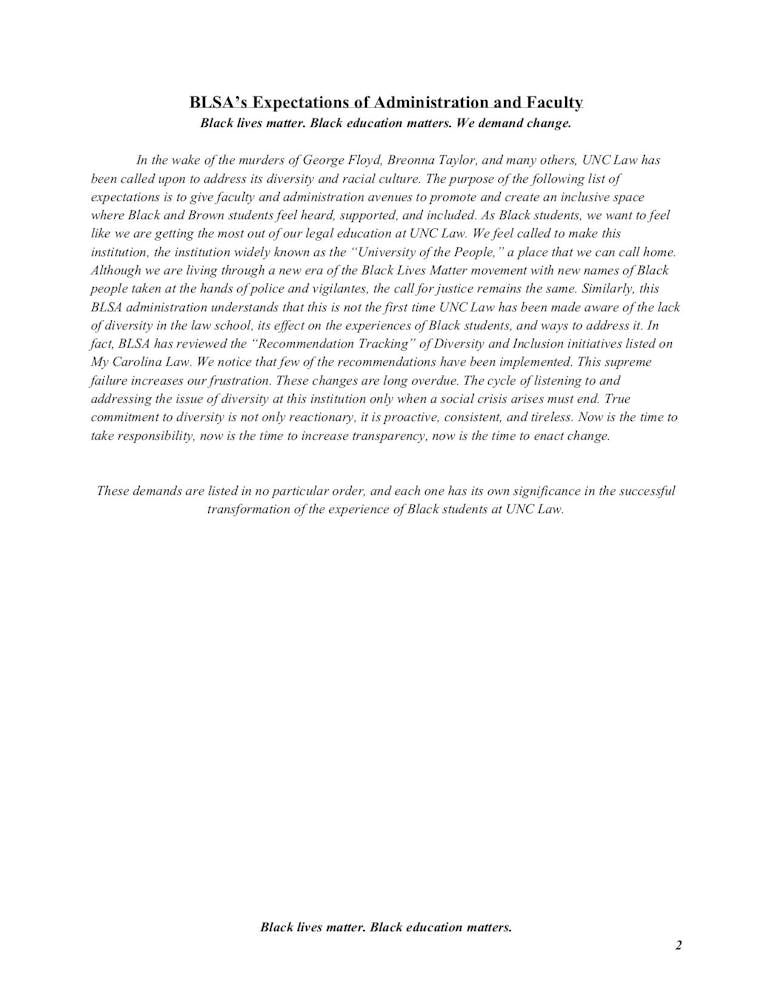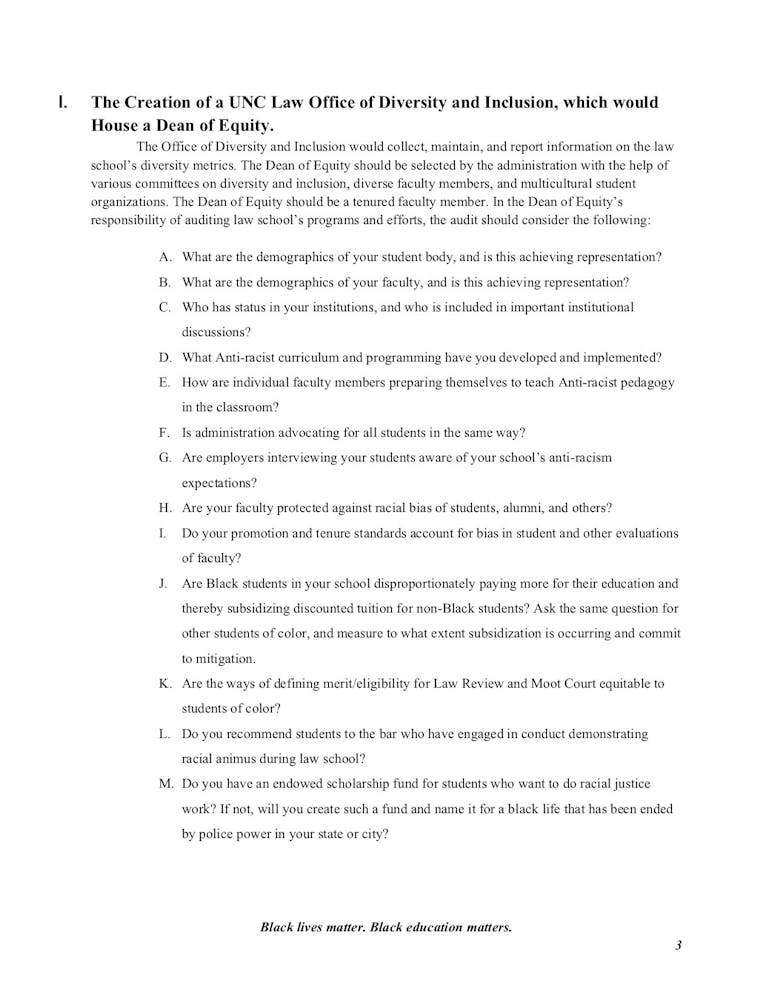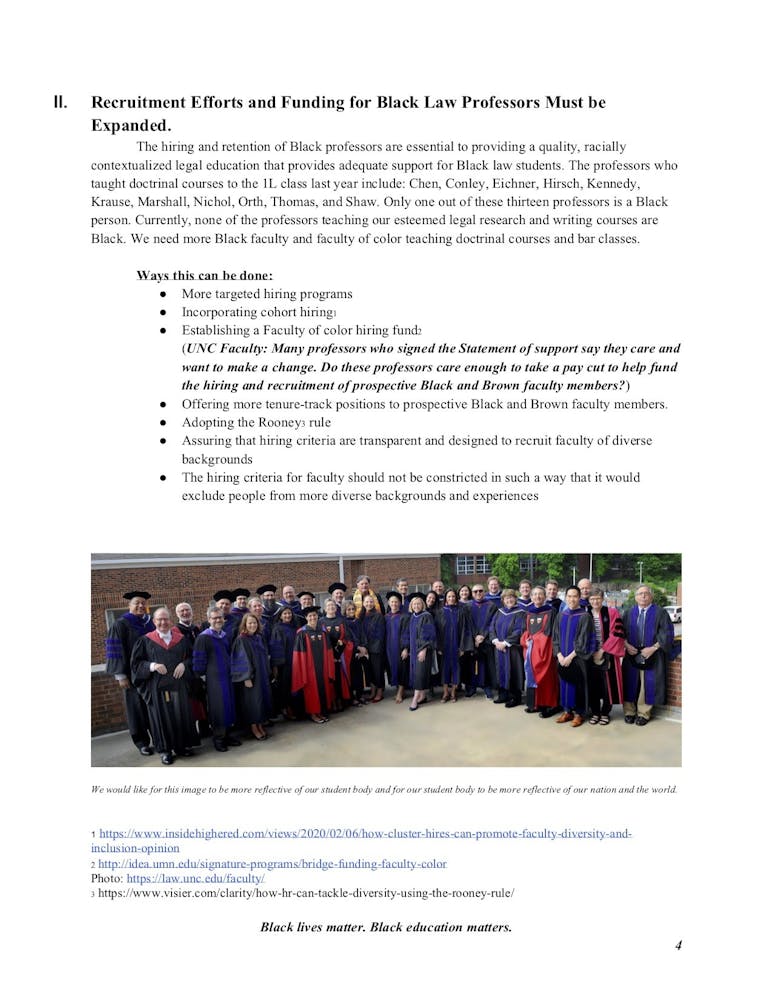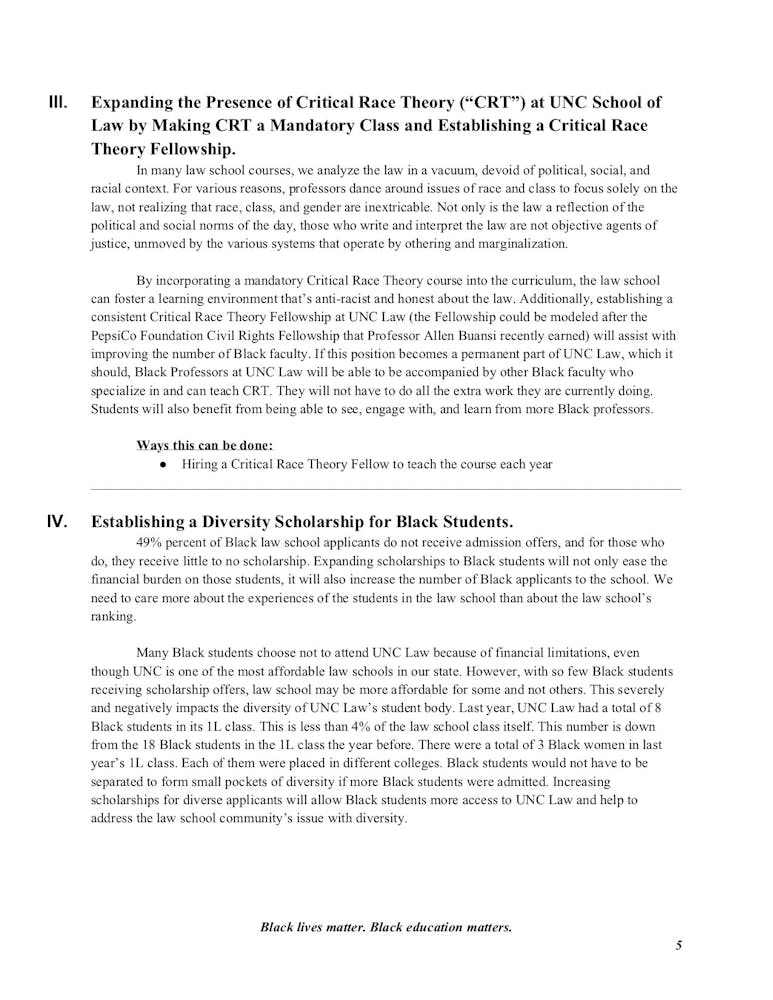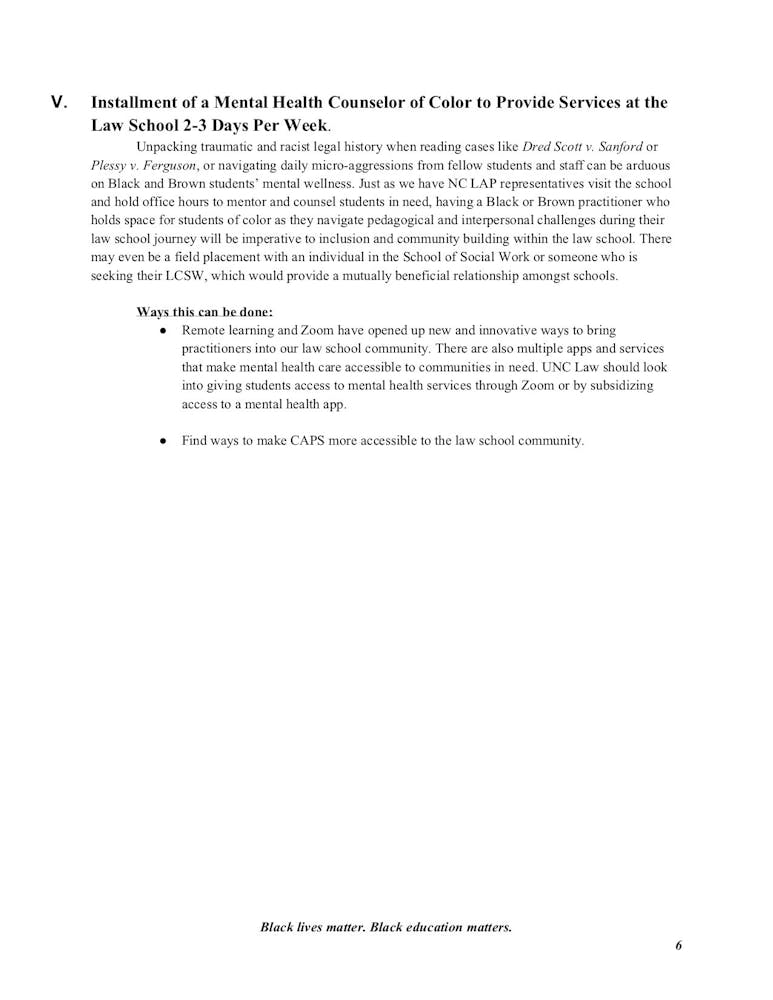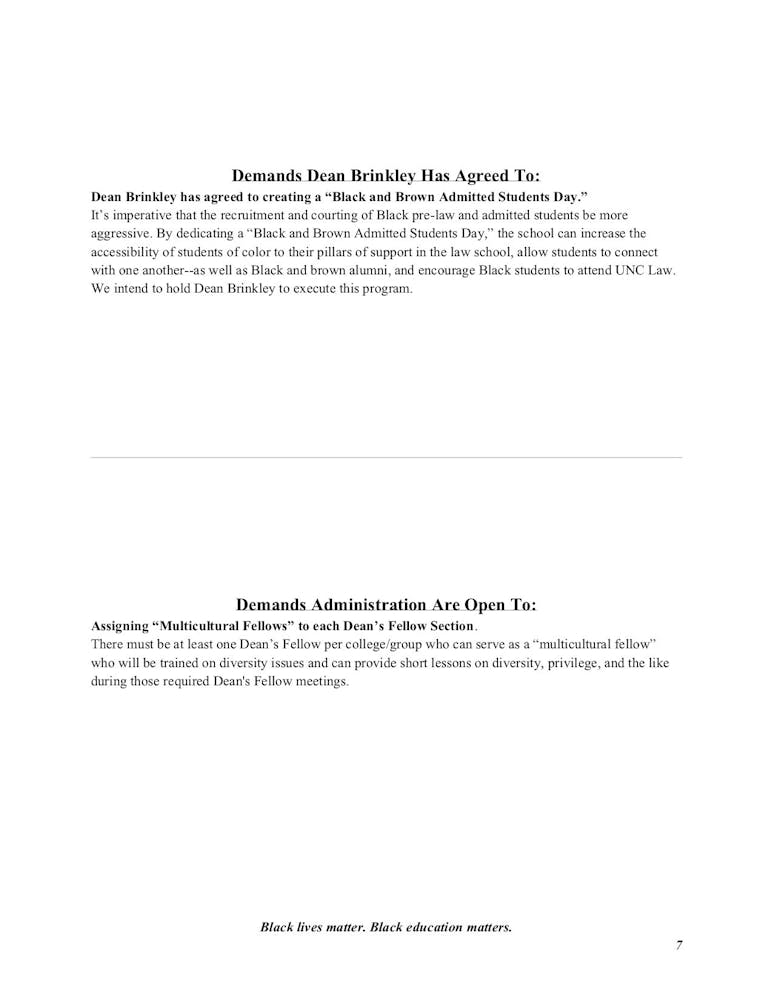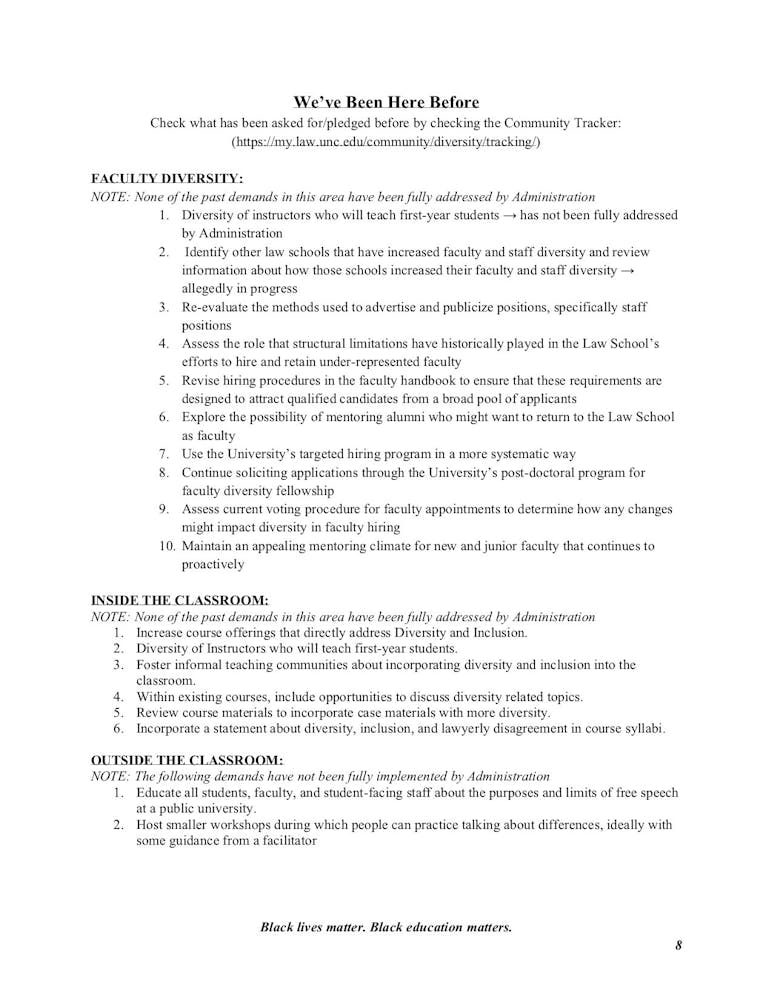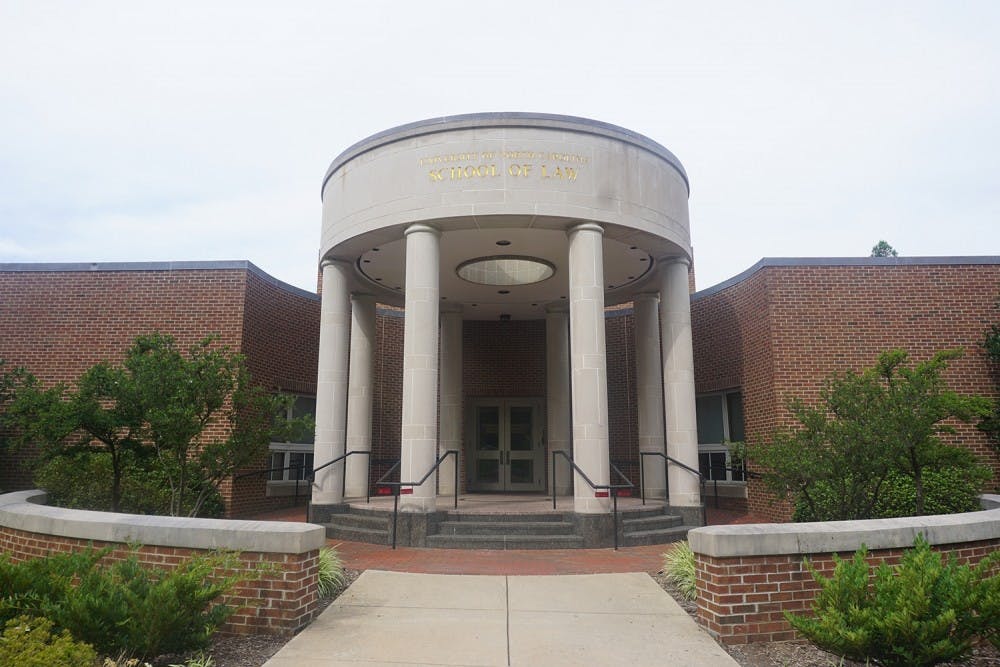In response, the law school first sent an email on June 12 to its students, faculty and staff acknowledging the letter.
"The issues our students, whom we cherish and whose callings to our profession we seek to foster, have raised are both urgent and eminently fair," the letter read. "Carolina Law has had conversations and done work around these issues in the past but not often enough, loudly enough, or with a great enough sense of urgency. We agree that we have not done nearly enough to foster a positive, uplifting environment for all of our students. That state of affairs is unacceptable, and we will do everything in our power to correct it."
The message was followed four days later with another email announcing that the law school had passed a resolution on faculty diversity, and that Brinkley was committing $1 million of a recent unrestricted gift to implement changes.
The resolution said the law school would be conducting a comprehensive review of its history concerning diversity and equity, engaging an external consultant to address implicit bias and committing to further diversifying faculty by hiring teachers with a demonstrated interest and expertise in race and the law.
One Black graduate of UNC Law, who took part in drafting the letter and wished to remain anonymous out of fear of professional repercussion, said they were encouraged by the law school's response so far.
"(The first email) ends with, 'We hear you, we are listening and we are working to make these pledges more than just words,' so I think it was an encouraging email sent out. I think it showed that they were supportive of our concerns and that they were working on doing this," the student said. "Obviously, whether that's true or not depends on what happens over the next couple of months, but this coupled with Dean Brinkley's email that he's allocating a million dollars towards diversifying faculty was really promising, and I was appreciative that they acted so quickly."
In a email response to The Daily Tar Heel, Brinkley said that though the $1 million is not specifically intended for faculty hiring, it may be used to fund incentive packages to "lay the groundwork for greater faculty diversity."
Faculty salaries are a significant part of the overall school's budget, and the allocated money alone wouldn't be enough to cover the cost of a permanent faculty member, he said.
"We will need to identify more substantial and recurring funding for that purpose, and I am hopeful that we will be able to do that," Brinkley said in the email. "A good deal will depend on the state budget going forward and on our ability to tap additional dependable revenue sources."
In addition to the funding commitment, the law school also hosted a virtual town hall-style meeting with students, faculty and alumni, where a panel of speakers provided resources on how to be anti-racist as an individual. The meeting also included a Q&A session, where students pushed law school administrators on the demands made by the BLSA.
"It was a great, great thing that happened, and it forced administrators to have to be accountable to students, to have to answer our questions, to really give us transparent answers," the graduate said. "I hope that continues, and I hope all the deans keep coming to the town hall, because I think that's the only way that it's most effective, if they're all there and they all have to answer the questions without saying, 'Well, that's so-and-so's job so I'll have to wait for them to answer.'"
UNC law students have previously pressured administrators to improve diversity within the school. In response to a letter submitted by students in 2015, Brinkley and Kelly P. Smith, associate dean of student affairs, announced the creation of a task force aimed at addressing inclusion and diversity efforts in the school. At the time, Brinkley and Smith also said anonymous assessments would be conducted to track UNC Law's progress.
To get the day's news and headlines in your inbox each morning, sign up for our email newsletters.
In his statement to the DTH regarding the current letter sent by Black UNC law students, Brinkley said he would take personal responsibility for ensuring the implementation of any faculty diversity initiatives are a "high priority."
He also said over the past five years, the school has made offers to faculty who would have contributed to the diversity of instructors, that they currently have one outstanding offer and that the school expects to consider other candidates soon.
"As I recently wrote to our community following the death of George Floyd, we are members of a profession charged with bearing the torch of justice forward," Brinkley wrote. "That means doing everything in our power to eradicate injustice, root and branch ... We will have to engage in a covenant with each other that we are not going to lose focus on these issues as time moves forward."
The student said while it's possible that the law school may not follow through on its promises as the national spotlight on racial justice declines, they are optimistic about efforts, given the solidarity Black students and alumni have found in the recent movement.
"This sense of solidarity has really made it so that we are all — all of us, I say that as an alumni working with students — we are all working together, working with alumni and working with faculty to really make sure this stays in the spotlight," the graduate said. "I think that with so many voices to make sure that happens, I'm actually more optimistic about the state of the law school than the state of the country right now; I'm optimistic that that is going to keep the pressure on."
@bg_keyes
university@dailytarheel.com
